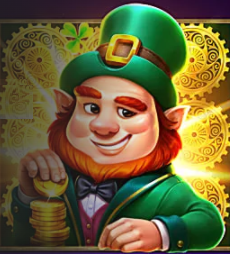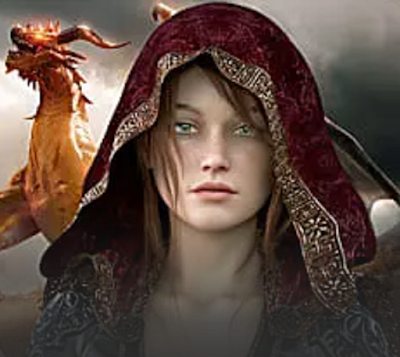Inka Piegsa (Fodor's via MSN); K. Woods; Pat Macpherson, Dhr. Seven (eds.), Wisdom Quarterly
.
Kevin Woods speaks for the leprechauns: ‘I have the gift of communicating with them’
 |
| What is a North Irish logheyyman/leprechaun? |

Are they fairies (kumbandhas), woodland spirits (devas), or just part of the treasure trove of Irish folklore?
A man who believes them to be real is Kevin Woods, well known in Ireland as “The Leprechaun Whisperer.”
 |
| We're Irish, but we don't believe in hogwash. |
I got in touch with him to learn his story and all I could about Ireland’s leprechauns (logheryman, leithbrágan, lioprachán, luacharman, lubrican, lugharcán, or lugracán).
At first, Woods admits he was skeptical about the existence of leprechauns. The Cooley Mountains are where tales and legends of spirits and fairies abound, until an event in 1989 made him more curious than he already was.
 |
| Lore has it we may have mated with fairies. |
- 18 inches tall,
- dress in green top hats, jackets, trousers,
- wear black pointed shoes with a gold buckle.
The little folks (the Wee People) — as leprechauns are sometimes known — are fairies who carry out a trade, such as shoemaking.
They love to dance and wear the soles of their shoes out pretty often, so they need to make new ones. They are rewarded for their labor with gold coins, which they hide in a pot of gold deep under the earth [where the reptilian nagas attempt to hoard it].
 |
| Who or what are the leprechauns? (fairyist.com) |
Though many people participated in the hunt, but no leprechaun materialized or was caught.
The legend further states that if one catches a leprechaun, he will grant you three wishes, and you might even get a small pot of gold.
This explains the interest in the hunt. After a while of fruitless searching, interest died down, but for Woods, it again sprang to life when in 2002, he found four gold coins close to a stone wall on Ghan Road, Carlingford.
This find, together with the first one, was proof enough for Woods that leprechauns exist.
Leprechauns make human contact
 |
| Leprechauns different names (Fairyist) |
“I have the gift of communicating with them, and so do others who are true believers,” explains Woods. “It is an out-of-body experience, but it is very real.”
Through his conversations with the leprechauns, Woods learned that there are only 236 leprechauns left alive of the many thousands that once existed all over Ireland.
The remaining leprechauns now live in a cavern under the Cooley Mountains, according to that research. Wood’s mission is to be a custodian of leprechauns and save them from extinction.
Woods has spent 19 years campaigning for leprechauns and, in 2002, petitioned the EU Habitat Directive — which protects flora, fauna, and wild animals — to include leprechauns as a protected species.
Woods runs the Last Leprechauns of Ireland enterprise in Carlingford, which organizes a National Leprechaun Hunt in the village every May. The enterprise aims to keep alive tales and legends about the little fairies, conduct a cavern tour, and exhibit a vast collection of leprechaun paraphernalia.
“For me, this is not a business,” says Woods. “I want to maintain the belief of leprechauns in the Irish people because that is the only way they will survive.”
What would YOU ask a leprechaun?
 |
| My son wants to be a wee little person, a real life leprechaun (ThatDadBlog.com) |
.
 |
| Are they real? Irish folklore (countryliving.com) |
Through Woods, they replied that their primary concern is survival. Once upon a time, the human spirit was closely connected to a belief in them, but the more affluent modern Irish society became, the more that belief died and them with it.
Leprechauns need someone to fight for them, and that person has become Kevin Woods.
Our next question for the leprechauns was whether they are immortal? The short answer is no.
As one only sees images and effigies of male leprechauns, we also wanted to know if there are female leprechauns. The answer is yes!
 |
| Fairies are ET-pretty (gambinoslot.com). |
The former is a malevolent spirit that manifests itself in the form of flickering lights over bogs and swamps and misleads wanderers and hikers, sometimes leading them to their death.
Leprechauns can be mischievous and play pranks on humans, but they are fun-loving musicians and generally benevolent, as shown in their willingness to fulfill three wishes if caught.
They make gifts of gold coins, and they can show one the end of the rainbow for good luck. They are only found in Ireland.
While Wood’s dedication is convincing, it is difficult to prove the existence of leprechauns themselves.
After all, seeing is believing. But for the affable Woods and the people of Carlingford, this subculture brings an undeniable joy and upholds an endearing part of Ireland’s folklore. Source
























































































































































































































































No comments:
Post a Comment